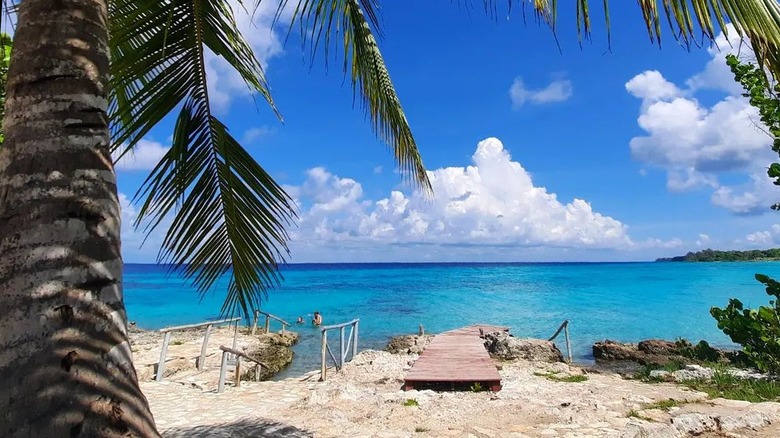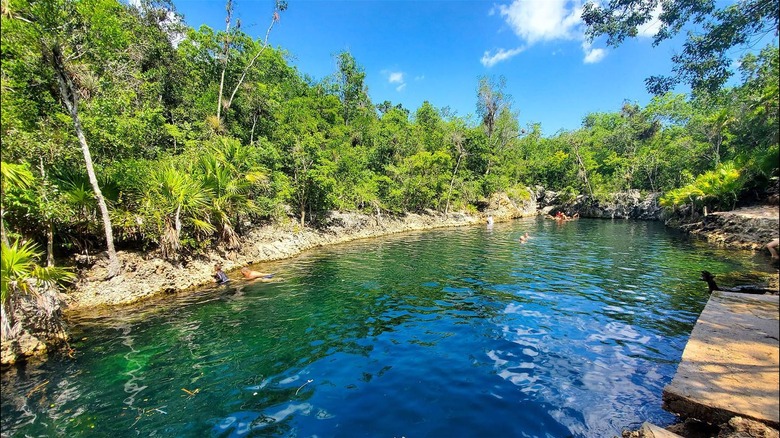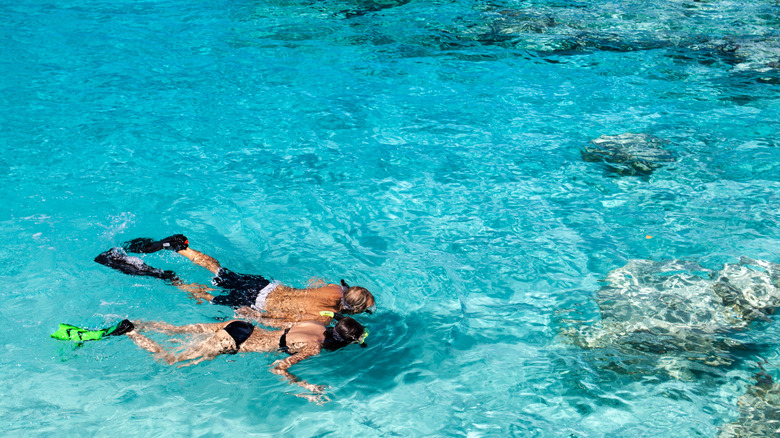One of the most beautiful places to snorkel in the Caribbean is a secret to many travelers. Punta Perdiz is located southeast of Havana, Cuba, and it is home to a diverse array of tropical fish, colorful coral, and turquoise waters. Situated near the Zapata Peninsula, this area has become a favorite spot for those who love to snorkel and scuba dive in the crystal-clear beauty below the surface. Teaming with fish and plant species that are native to this area of the Caribbean, Punta Perdiz is next to the wetlands of Ciénaga de Zapata. This area was designated a UNESCO World Biosphere Reserve and snorkeling in these waters can offer travelers a unique opportunity to experience its beautiful ecosystem just offshore.
Cuba’s Zapata Peninsula is situated on the Bay of Pigs, which was the setting for an infamous international incident during the Cold War between the United States and Cuba in 1961. This area has now become remarkable for another reason. The clear blue waters of this peninsula are an amazing snorkeling and diving destination, featuring beautiful coral reefs with prime examples of elkhorn, brain, star, and flower coral. These sights are located just off the coastline and are even visible to snorkelers embarking on shore excursions. The geography of the area protects the waters from tumultuous breakers, and the result is calm seas with wonderful visibility.
Discover underwater caves and shipwrecks

trapsick3/Instagram
The calm waters around Punta Perdiz make it possible to observe beautiful sea life, such as stingrays, turtles, angelfish, parrot fish, and snapper. This area boasts several other highlights for snorkelers, such as sunken shipwrecks, dramatic reef walls covered with marine life, and a number of underwater caves. Known as cassimbas, these caves attract adventurous scuba divers eager to explore unique underwater formations. The caves feature the unusual characteristic of haloclines, where fresh water is located near the surface of the ocean, and salt water is present below a certain depth. Snorkeling or diving in a halocline can have a dramatic effect on buoyancy, and it often features an amazing impression of a second “surface” beneath the water, making it a unique experience that snorkelers and divers won’t forget.
Punta Perdiz is situated between two popular beaches, Playa Girón and Playa Larga. The entrance fee will provide you with access to the snorkeling spot and beach equipment for one day, in addition to a buffet provided by the small restaurant nearby. For accommodation, many travelers choose to stay at one of the casas particulares in nearby Playa Girón and Playa Larga. This type of local accommodation offers a guest room or the entire home for rent. These homes are often set right on the water, with amenities such as separate entrances, free Wi-Fi, and private bathrooms.
Snorkel in a tropical lagoon and spot wildlife

fonomacuba/Instagram
Another area of interest near Punta Perdiz is a beautiful lagoon called La Cueva de los Peces, which translates to “The Fish Cave.” Located between Playa Larga and Playa Girón, this crystal-clear body of water was created hundreds of years ago when the roof of a cave fell into the sea. Also called a cenote in some parts of the world, it is around 230 feet deep and still fed by the ocean through a channel below the surface. Snorkeling in La Cueva de los Peces provides visitors with another opportunity to enjoy the tropical underwater environment without swimming in the open ocean. As the name suggests, this natural pool is filled with a variety of colorful fish. The lush landscape surrounding the lagoon is another reason why visitors enjoy this spot, as it truly feels like you’re swimming in a tropical paradise.
As the largest wetland in the Caribbean, Ciénaga de Zapata is a location that all nature lovers will enjoy. The area features hundreds of unique plant species, which also makes it an excellent birdwatching destination. Over 80 rare species of birds live in the Zapata National Park bird sanctuary, and travelers have the unforgettable opportunity to see a large colony of flamingos or herons during their visit. Visitors to Punta Perdiz will never forget the beauty of this area, both underwater and in the surrounding wetlands.

